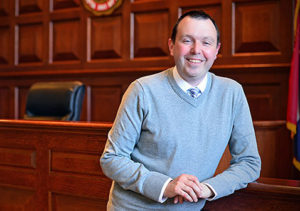U.S. Congresswoman Jackie Speier introduced on July 14 a long-delayed federal bill that would outlaw nonconsensual pornography in the United States.
While he supports the law, Neil Richards, privacy law expert at Washington University in St. Louis, think it’s important that the bill be drafted in such a way as to not be a tool for censorship that can threaten our commitment to free expression.

“I do think that we can, and must, take meaningful action against ‘revenge porn,’ and we can do it in ways that are consistent with free expression and the First Amendment,” Richards said.
“Looking at this bill, it’s clear that the drafters have thought about these problems and tried to write a law that is broad enough to deal with a wide variety of instances of nonconsensual pornography, and downstream users, but which also tries to steer clear of the biggest free-speech problems that a blunt ‘no nonconsensual images or video’ law would create,” he said.
If passed, the bill would make the distribution of such images a crime punishable by a fine or up to five years in prison.
“I think on balance, this is a very well-drafted law,” Richards said. “Revenge porn is a real and important problem, and we need a federal law to help deal with it.”
At the same time, he said, “we have to be very careful not to enact something that sweeps too broadly and has the effect of censoring sexually explicit expression the way the Communications Decency Act of 1996 did by outlawing all ‘indecent’ online content unless proof of age were obtained.”
“I think this law does a good job of regulating nonconsensual pornography and protecting free expression by excluding information in the ‘bona fide public interest’ and limiting its scope to reckless disclosures,” Richards said. “I’d prefer that the law limited itself to intentional disclosures, which would trade off some protection against revenge porn for a greater protection for free expression online. If passed, I think the bill may be challenged under the First Amendment.”